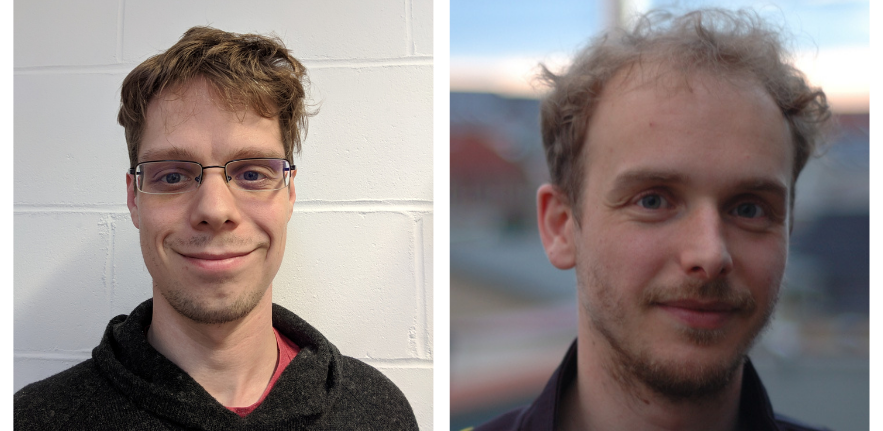
Submitted by Vanessa Bismuth on Fri, 09/07/2021 - 10:14
Congratulations to Dr Rene Poncelet and Dr Jan Behrends who have been awarded a Leverhulme Trust Early Career Fellowship. This highly prestigious, fiercely competitive award is intended to assist those who are at a relatively early stage of their academic career to undertake a significant piece of publishable work.
More than 700 applications were received for 146 awards, so the competition has been particularly fierce this year.
René Poncelet is based in the High Energy Physics theory group at the Cavendish Laboratory where he works on Large Hadron Collider phenomenology. He obtained his Bachelor's and Master's degrees in Physics at the Georg-August University Göttingen in Germany. In 2015 he took up a PhD position at the Institute for Theoretical Particle Physics and Cosmology at the RWTH University in Aachen.
The main focus of his research has been precision predictions for Standard Model processes with many particles and development of methodology in perturbative Quantum Chromodynamics. He will continue to work on this area of research with the support of the Leverhulme Trust Early Career Fellowship.
Jan Behrends is a theoretical physicist at the Cavendish Laboratory, who works on quantum many-body chaos and topological phases of matter. After finishing his undergraduate degree at Freie Universität Berlin, Jan moved to the Max Planck Institute for the Physics of Complex Systems in Dresden to start his PhD on topological semimetals and their link to high energy physics. He joined the Cavendish Laboratory in 2018 to continue and diversify his research. Since 2020, Jan is a Research Fellow of Darwin College.
The Leverhulme Trust Early Career Fellowship will provide him the opportunity to continue his research on topology and many-body chaos, investigating how dissipation affects topologically protected quantum states and quantum chaos.
The successful Fellows holding their grant at the University of Cambridge are supported by the Isaac Newton Trust who are matching the Leverhulme award in years 2 and 3, funding 50% of the Fellowship's salary costs.
Fore more information, visit the Leverhulme Trust webiste.
